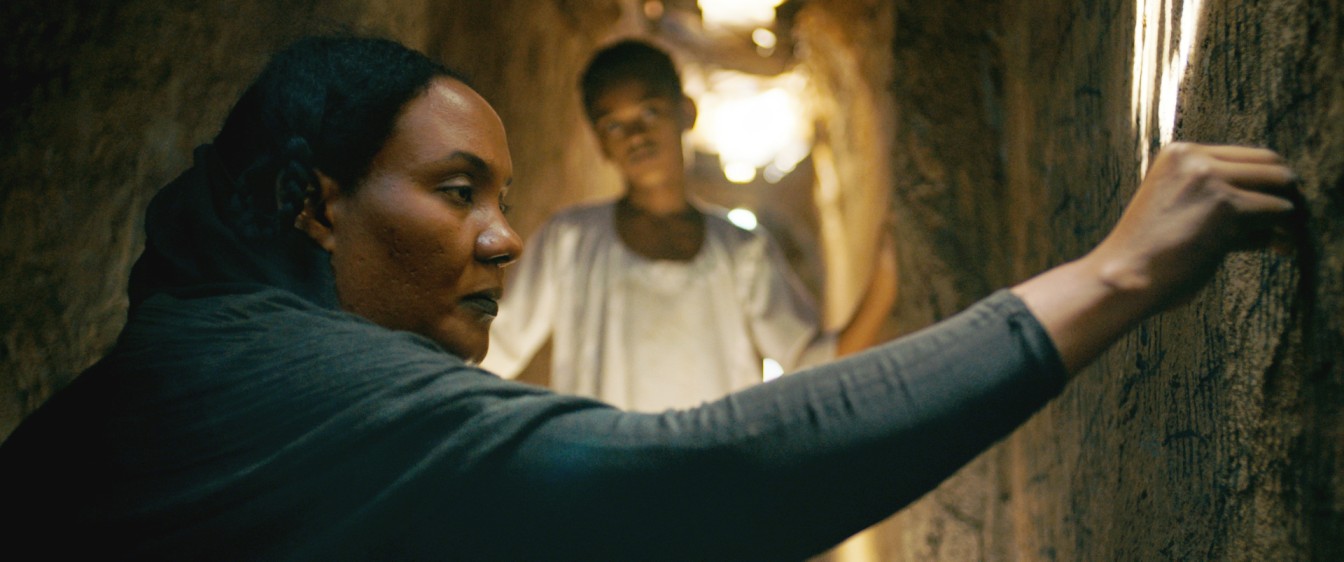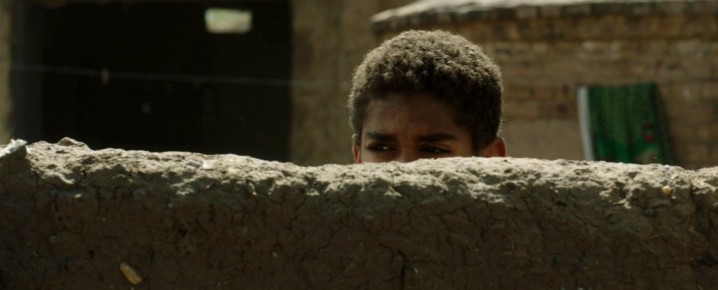Interview by Khalid Ali, Film and Media Correspondent
‘You Will Die At Twenty’ (Amjad Abu Alala, Sudan, 2019) winner of Best Debut Film – Venice Film Festival, and Best First Film, Best Screenplay, Fipresci Prize- Carthage Film Festival 2019.
In UK cinemas from Friday 12th November, http://www.newwavefilms.co.uk/view-film-detail.html?viewListing=MjE5&cat=1

Based on the Sudanese writer Hammour Ziada’s short story, ‘Sleeping at the Foot of the Mountain’, ‘You Will Die at Twenty’ follows the life of Muzamil (Mustafa Shehata); at his initiation ceremony, a sheik (religious authority figure) issues a prophecy that Muzamil will succumb to an early death at the age of twenty. Transfixed by Muzamil’s grim fate, his mother, Sakina (Islam Mubarak), becomes overprotective committing him to home schooling (figure 1), while his despairing father, Alnoor (Talal Afifi), flees the family home because he cannot face the tragic destiny of his only son. Muzamil and his family cannot denounce the religious traditions of their Sufi village lying between the Blue and White Nile in Al Jazira State, Sudan.
The kids in the village bully Muzamil, calling him “son of death”. As he becomes increasingly isolated (figure 2), his only solace comes in the form of studying the Holy Koran. Muzamil’s life is turned upside down when he meets Suliman (Mahmoud Elsaraj), a cinematographer, who opens Muzamil’s eyes to the world of cinema and art. A conflict grows within Muzamil between his traditional values and newfound liberal aspirations. His thirst for life in the few years left before his destined demise is welcome by his mentor Suliman but frowned upon by his mother. An existential crisis burns inside Muzamil heart and mind; what is life’s worth if not lived to the full? What can one repent for if he has not experienced sin? Is there pleasure in sin? Why apologize before making a mistake? What is life without faith? But as importantly, what is the value of living as a dead person?

The film director, Amjad Abu Alala, (figure 3) is a Sudanese filmmaker who was born and raised in Dubai. Reflecting on his childhood, Abu Alala adds: “I spent five years in Sudan when I was a teenager. My film has a lot to do with that period. Sudan is where I fell in love with cinema and where I watched a film by the late Egyptian director, Youssef Chahine, for the first time. I then began to search for his other films and for films by other directors. Years later, while studying at University in Dubai, I started using a camera for my first short film”.

The literary origin of the film was the inspiration for Abu Alala: “I read the story in 2016 and immediately I knew that it would inspire my first feature. The story resonated with my own childhood. While I am quite a joyful guy who loves life, there is always something in my mind about death. When I was in Sudan, I lost my best friend and then three months later, one of my aunts died. Those two deaths struck me. I became a very quiet child and stopped talking for weeks. It was when I started University, that I connected with the world again, and discovered my passion for theatre and cinema”.
On the connection between political regimes, and people’s beliefs and superstitions, Abu Alala adds: “the film addresses the extent to which a strong belief can really dominate people’s lives and the way that this strong influence can sometimes be manipulated politically. The Sudanese government of Omar Al-Bashir used Islam to silence citizens. When a government official publicly announces, “God says”, no one dares to talk or express a free opinion anymore. My film is an invitation for freedom. Nothing and no one can ever tell you: this is your destiny and that it is written somewhere. Everyone must decide for themselves what their lives will be. That is what Suliman tries to teach Muzamil; Suliman advises him that he must first experience the good and the bad in life, and only then can he choose the right path.”